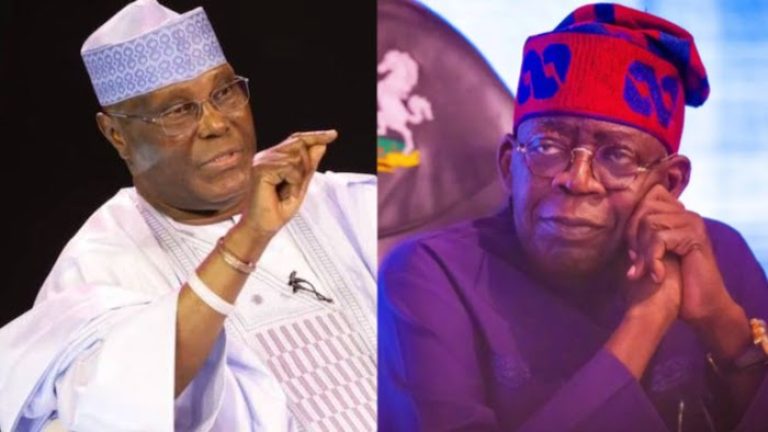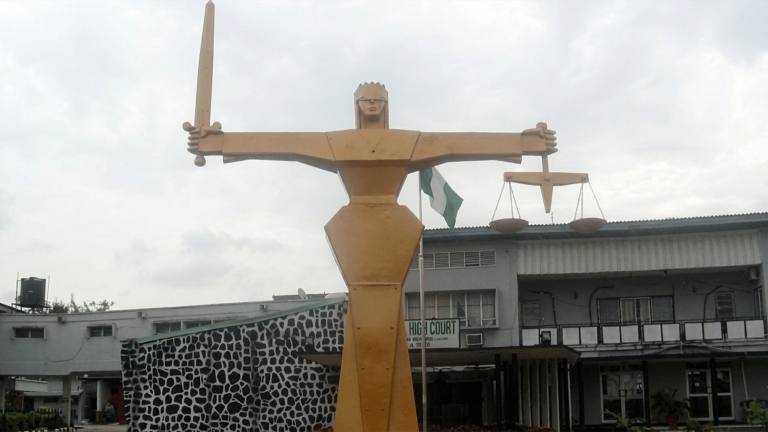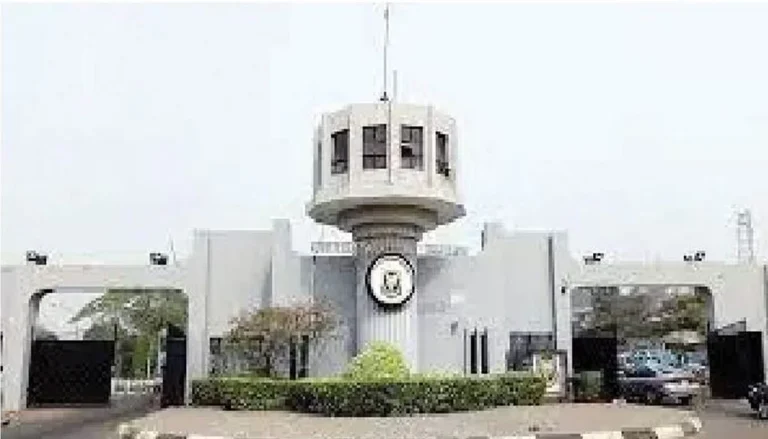
In the wake of allegations of waste, fraud, and abuse involving the N447.6 billion COVID-19 intervention fund between 2020 and 2022, the House of Representatives has subpoenaed 83 federal ministries, departments, and organisations.
According to The PUNCH’s reporting, audits of MDA budgets revealed that 22 of them received a minimum of N447.6bn in COVID-19 money in 2020.
The COVID-19 intervention budget from 2020 to 2022 was significantly more than the N447.6bn received by less than half of the MDAs summoned by the House of Representatives for the investigation set to start on November 27, 2023, and terminate on December 4, according to this.
Along with dozens of other departments and agencies, the House extended an invitation to the Ministries of Agriculture and Food Security, Communications and the Digital Economy, and the Federal Road Maintenance Agency.
Legislators will examine the MDAs about the suspected misuse of COVID-19 intervention funds that were given to them to combat the worldwide pandemic.
The lawmakers invited all MDAs to be present with their “Chief Accounting Officers, Head of Finance, Head of Procurement and any other relevant officer to defend the expenditure contained in their various submissions” in an invitation issued by Bamidele Salam, a member representing Ede North/Ede South Federal Constituency, Osun State, and the Committee Chairman, dated November 20, 2023.
As well as FERMA
On Monday, November 27, representatives from the following federal ministries will be appearing before the Committee: (a) Agriculture and Food Security; (b) Communications, Innovation and Digital Economy; (c) Youth and Sports Development; (d) Women Affairs and Social Development; and (e) Humanitarian Affairs and Poverty Alleviation.
The Federal Directorate of Employment, National Hospital in Abuja, Mines and Steel Development, Water Resources, The Ministry of Finance, Budget and National Planning, and the other federal ministries are among those that are included.
The following entities are scheduled to appear before the committee for the exercise on Tuesday, November 28: Nigeria Centre for Disease Control, Office of the Secretary to the Government of the Federation, National Institute for Pharmaceutical Research and Development, Nigeria Security and Civil Defence Corps, and National Agency for Food and Drugs Administration and Control.
On Tuesday, the following entities are scheduled to make appearances: the Federal Fire Service, the Nigerian Correctional Service, the Nigerian Airforce, the Nigerian Police Force, the Nigerian Army, the Federal Medical Centre, Keffi, Nasarawa State; the University of Abuja Teaching Hospital; the Federal Medical Centre, Jabi, Abuja; the National Commission on Refugees, Migrants, and Internally Displaced Persons Offices, Abuja; and the Rural Electrification Agency.
The following institutions and organisations will be featured on Wednesday, November 29: the Nigerian Institute for Medical Research in Lagos State; the National Eye Centre in Kaduna State; the National Ear Centre in Kaduna State; the Aviation, Industry, Trade and Investment Ministries; the Federal Medical Centre in Bida, Niger State; the Federal Medical Centre in Lokoja; the Federal Medical Centre in Makurdi; the Federal Medical Centre in Umuahia, Abia State; the Federal Medical Centre in Owo, Ondo State; and the following in Katsina, Nguru, Yobe State; Asaba, Delta State; and Gusau, Zamfara State.
Taraba’s FMC
The Federal Medical Centre, Jaligo, Taraba State; Brini Kudu, Jigawa State; Yenagoa, Bayelsa State; Azare, Bauchi State; Ebute-Metta, Lagos State; and the Federal Neuro-psychiatric Hospital Enugu are among the organisations that would be hosted by the committee headed by Salam on November 30, 2023.
Three federal neuropsychiatric hospitals in Nigeria—one in Kware, Sokoto State; one in Yaba, Lagos State; and one in Abeokuta, Ogun State—will present their cases to the committee on December 1.
“I cannot give you additional information now,” Salam said our reporter over the phone, declining to provide any further clarifications. I can tell you more if you call me tomorrow, Tuesday. All I have to say at the moment is this.
Of the 83 MDAs asked for the examination, only 22 were captured under the COVID-19 Intervention Programmes 2020 Appropriation Act (Amendment). The results demonstrated that out of the 22 MDAs included in the paper, the greatest appropriation in 2020 went to all teaching hospitals, receiving N86bn.
With N75 billion, the Ministry of Trade and Investment was second, and with N60 billion, the Federal Roads Maintenance Agency was third.
Out of the total budget of N56.46 billion, N52 billion went to the Ministry of Employment; N5 billion to the Ministry of Aviation; N23.64 billion to the Ministry of Health; NAFDAC, NCDC, NIPRD, and NIMR each received 2 billion; and NIMR received 1 billion.
Contributions of 539,67 million Naira were received by the NSCDC, 6 billion by the Ministry of Water Resources, 9.89 billion by the Rural Electrification Agency, 36 billion by the Ministry of Finance, and 951.14 million by the Correctional Services.
N1.48 billion went to the Federal Fire Service, 2.5 billion to the Refugees Commission, 2.7 billion to the Air Force, 10 billion to the Nigeria Police, and 32,46 billion to the Humanitarian Ministry.
Ministry to women and the homeless
Despite several ministries receiving substantial budget allocations over time, the COVID-19 intervention money were nonetheless distributed to them.
For example, according to research conducted by one of our journalists, the ministries of women’s affairs and humanitarian affairs received a total of almost N386.5bn from 2019 to 2023.
In 2019, N5.56bn was appropriated for the Federal Ministry of Women Affairs; in 2020, N8.19bn, N7.29bn, N33.58bn, and N17.18bn were allotted for 2022 and 2023, respectively.
The humanitarian ministry received appropriations of N62.8bn in 2020, N7.29bn in 2021, N35.6bn in 2022, and 208.94bn in 2023, in that order.
Defending the House of Representatives’ planned investigation, Debo Adeniran, chairman of the Centre for Anti-Corruption and Open Leadership, characterised it as a reactive exercise.
Rather of taking the initiative, he suggested the National Assembly let the Independent Corrupt Practises and Other Related Offences Commission head a group of honest people.
As a matter of primary importance, the House of Representatives is merely reacting. The COVID-19 palliatives were expected to be distributed to those affected by the lockdown and other pandemic inconveniences at the same time as they were to have been proactive and done their monitoring functions on the MDAs.
Due to their carelessness, I think they are trying to find a means to win back the public’s affection. The ICPC is responsible for conducting the investigations.
“If the National Assembly is serious about getting down to business, they should ask the ICPC to investigate, recruit honest people, and form a committee to do it,” Adeniran said.
Civil Society Legislative and Advocacy Centre Executive Director Auwal Rafsanjani also voiced his disapproval of the House of Representatives’ intended investigation.
He further mentioned that the current Senate President had also been asked to give testimony regarding the handling of cash.
How will the House of Representatives investigate the addition of the Senate President to the list of witnesses questioning his involvement with the COVID funds? In my opinion, the moment has come to prove that the COVID-19 monies were stolen.
We were unsuccessful in obtaining comments from the ICPC and the Economic and Financial Crimes Commission. On the other hand, updates will be provided by Tuesday, according to the EFCC.
Funds for the COVID-19 intervention programme were released simultaneously by the federal government and private sector operators.
The Nigeria Private Sector Coalition Against COVID-19, or CACOVID, has raised around N27.16 billion to combat the coronavirus pandemic, according to data released by the Central Bank of Nigeria in April 2020.
The CBN, speaking on behalf of the Abuja-based consortium, published a document updating the contribution as of April 23, 2020.
Donations came from all throughout the nation, as shown in the document that included the names of the contributors.
The CBN and Aliko Dangote were identified as the top two contributors at the time, each contributing N2bn, according to the paper.
An impressive list of contributors, including Abdul Samad Rabiu of BUA Sugar Refinery, Segun Agbaje of GTB, Tony Elumelu of UBA, Oba Otudeko of First Bank, Jim Ovia of Zenith Bank, Herbert Wigwe of Access Bank, and Femi Otedola of Amperion Power Distribution, each contributed N1 billion to the fund.
Fidelity, African Steel Mills, Stanbic IBTC, Citi Bank Nigeria Ltd., FCMB, Union Bank Plc, Sterling Bank Plc, Standard Chartered Bank, Deji Adeleke of Pacific Holding Ltd., and others donated N250 million each.
In addition to the N200 million provided by Multichoice Nigeria Limited at the time, the list also showed that many Nigerians contributed N1,000, N500, N200, N100, N50, and even N1.0.
“So far, 266,675 cases (of COVID-19) have been confirmed, 259,953 cases have been discharged and 3,155 deaths have been recorded in 36 states and the Federal Capital Territory,” according to data obtained on Monday, November 20, 2020, from the website of the Nigeria Centre for Disease Control and Prevention.
“Rivers and Kaduna states have recorded no instances whatsoever. The national response actions are being coordinated by a multi-sectoral national Emergency Operations Centre that was activated at Level 2.
On February 28, 2020, the virus index was confirmed in Nigeria. The first coronavirus-related death in the country occurred the following day, exactly one month later.
According to his family, former Managing Director of the Pipelines and Products Marketing Company Suleiman Achimugu passed away on March 23 after exhibiting symptoms of the illness upon his return from the UK.
The news of the death spread rapidly, leading to widespread panic purchasing of cleaning supplies and, one week later, on March 30, a lockdown of Abuja and Lagos for an initial period of fourteen days.
Abba Kyari, the influential Chief of Staff of former President Muhammadu Buhari, died of coronavirus at the age of 69 on April 17, making him the most famous COVID-19 death in West Africa at the time.
Abiola Ajimobi, who served as governor of Oyo State twice, also succumbed to preexisting health issues following her coronavirus infection.
On July 2, 2020, at the infectious disease hospital in Ondo State, Wahab Adegbenro, the state’s commissioner of health, passed away due to complications caused by COVID-19.
Coronavirus illness also claimed the life of Bayo Osinowo. Osinowo represented the Lagos East Senatorial District in the Senate until his untimely demise. At the age of 64, he died on June 15th.
The number of casualties from the virus continues to rise; as of Monday, 3,155 were recorded by the NCDC.








